Saudi Arabia fails the world — and itself
By H. Javan
That Saudi Arabia has held Lebanese Prime Minister Saad Hariri in conditions similar to those of a captive is indisputable. Even if Hariri is allowed to leave in a short while, as he has said he would be, his family will remain there, as if for future blackmail.
“Sources close to Hariri” as well as Lebanese security and other officials have also revealed in particular detail how the Lebanese official was basically lured into Saudi Arabia, had his mobile phone confiscated on arrival there, was disrespected, confined in his movements, and given a declaration of resignation to read.
Hariri first appeared in footage taken in an undisclosed location in Riyadh on November 4 — when he read out the resignation message. He did not appear publicly until Sunday, when he gave a televised interview — also in Riyadh.
Saudi Arabia has attempted, including with the interview, to deny that it is holding Hariri against his will. But nothing has happened yet to challenge the numerous credible accounts that the man has been under some form of restriction.
While foreign diplomats reportedly met with him at a Riyadh location over the past days, they all got the impression that he could not speak freely. Lebanese President Michel Aoun earlier officially declared that Hariri’s movement has been restricted in Saudi Arabia. And “two top government officials” in Beirut have said they believed Hariri is “being held” in Saudi Arabia.
A third source, an associate of Hariri’s, has said Saudi Arabia “had ordered him to resign and put him under house arrest.”
Even by his looks, Hariri is not having a good time in Riyadh. In the Sunday interview, Hariri’s eyes were filled with tears at one point, and, later, he ended the interview because he said he was tired.
A change of plans?
All of the accounts of Hariri’s effective detention seemingly worked to increase the pressure on Riyadh, culminating in the arrangement of the interview, in which Hariri denied having been confined and said he would return to Lebanon “within days.”
He did not explain why he had seemed uneasy and unable to speak freely in his meetings with the foreign diplomats, or why he had been unheard of publicly since November 4.
President Aoun had said before the interview was broadcast that anything Hariri would say from Riyadh had to be doubted. Hariri’s “ambiguous” situation in Saudi Arabia, Aoun said, “makes everything that comes out and that will come out from Hariri — or anything that will be attributed to him — to be doubted and considered as if it didn’t come out by his own choice.”
Later, Hariri tweeted that, “God willing,” he would be returning to Lebanon “within days.” He had a little something to add: his family would stay in Saudi Arabia.

Hariri had reached an agreement with the Lebanese Hezbollah group, an armed and political faction represented in the Lebanese parliament, to form a unity government and become prime minister in 2016. Despite its ostensibly good relations with Hariri, Saudi Arabia then quietly plotted to change the equation.
According to sources close to Hariri, after a recent trip to Saudi Arabia, the Lebanese prime minister “believed he had convinced Saudi officials of the need to maintain an entente with Hezbollah for the sake of Lebanon’s stability.” He returned from that trip “pleased and relaxed.”
Clearly, he had been misled to feel that way. Before Saudi officials arranged another trip for Hariri to Saudi Arabia, they planned out a whole lot of less pleasing things for him — and for Lebanon.
Hariri was “summoned” to Saudi Arabia for a meeting with Saudi King Salman “in a phone call on Thursday night, Nov. 2,” according to a Reuters report that cited the Hariri associates and “top Lebanese political and security officials.”
He told his aides that he would be back on Monday. Or, he thought he would.
When he arrived in Riyadh, “[h]is phone was confiscated, and the next day he was forced to resign as prime minister in a statement broadcast by a Saudi-owned TV channel,” said the report.
What was Saudi Arabia thinking?
The Saudi assumption behind having Hariri resign is more or less clear: disrupting the political balance in Lebanon with an eye on undermining Hezbollah.
But what made Saudi officials think that if Hariri resigns, Hezbollah will automatically be ejected from Lebanese politics? What made them think that if they held Hariri, that same scenario would play out?
Apparently, Saudi Arabia wasn’t thinking.
It rashly took the prime minister of another, sovereign nation into effective custody, had him resign, and then threatened that nation with sanctions and war to exclude a local group present both in parliament and government.
On November 6, Saudi [Persian] Gulf Affairs Minister Thamer al-Sabhan sought to signal to Lebanese officials that they had to do without Hezbollah. “There are those who will stop (Hezbollah) and make it return to the caves of South Lebanon,” he said, threatening that the Lebanese government would already “be dealt with as a government declaring war on Saudi Arabia.”
Whether Saudi Arabia, bogged down in a war in the Arab world’s poorest country — Yemen, can start another war of aggression is another question. But what guarantee is there that the Riyadh regime will not move to destabilize Lebanon in some other violent way, including with terrorist attacks?
(Lebanon has seen rampant violence before. Saad Hariri’s own father, former Prime Minister Rafiq Hariri, died in a bombing that targeted his convoy in 2005.)
Maybe it was in anticipation of Saudi-instigated violence that both the Lebanese president and Hezbollah stressed the preservation of security and calm first thing after Hariri announced his resignation from Riyadh.
In what may later also turn out to have been Saudi-designated talking points, Hariri also said in the Sunday interview that his nation faced the possibility of sanctions if Hezbollah continued to operate politically and militarily.
Despite the threats of war and sanctions, there hasn’t been the slightest indication that the Lebanese group, which has helped with maintaining security in the country, faces banishment by the Lebanese state.

Instead, this latest episode in Saudi Arabia’s regional behavior caused disillusionment on the streets of Lebanon — and on the Arab street in general — with Saudi Arabia and its patronage.
Arab nations have been learning one by one that Saudi Arabia does not wish them well. And they have been learning it the hard way. First there was Yemen, where a devastating Saudi-led war has so far killed at least 12,000 people. Then, there was Qatar, which has been facing a diplomatic and economic war also orchestrated by Riyadh. And now, Saudi Arabia has turned to Lebanon.
When Saudi Arabia targeted Qatar, the Qatari people first panicked, but they soon rallied around their leader, Qatari Emir Sheikh Tamim bin Hamad Al Thani, in a show of unity against Saudi Arabia.
Effectively that same thing has now happened in Lebanon: “Lebanese of all stripes want him (Hariri) to come back from Saudi Arabia and to continue his work as premier.”
Meanwhile, statesmen in the US and Europe may be realizing that Saudi Arabia behaving as it is has made the regime a liability.
The United States has refused to definitively recognize Hariri’s resignation so far — because it was announced in Riyadh. On Friday, almost a full week after Hariri read out the Saudi-drafted announcement of resignation, US Secretary of State Rex Tillerson said, “If he (Hariri)’s going to step down, as I understand it, he needs to go back to Lebanon to make that official.”
The US secretary of state hedged a lot talking about the campaign of mass arrests that Mohammed bin Salman has launched to purge potential opponents, but he was blunt in making one point: Hariri must return to Lebanon.
That didn’t look like outright American support for Saudi Arabia.
The European Union, too, has made that exact same point.
Riyadh has also alienated members of Hariri’s own political group, who have rejected the idea of Saudi Arabia assigning Saad’s younger brother, Bahaa, as the new top Sunni politician in Lebanon.
“We are not herds of sheep or a plot of land whose ownership can be moved from one person to another. In Lebanon things happen though elections not pledges of allegiances,” reads a statement by Hariri’s own Future Movement political party, which is allied with Riyadh.
Look at it however you please. It is basically mission failure for Saudi Arabia.

Rash action with special disregard for consequences has become a staple of Saudi foreign policy under King Salman and his all-powerful son, Mohammed. They start actual wars, declare imaginary wars, kidnap foreign officials, purchase hundreds of billions of dollars’ worth of military equipment, and go around tossing verbal grenades in a volatile Middle East where reckless maneuvering is the last thing you want to do as a state.
Whether Hariri will return to Lebanon remains to be seen. Even if he does, his family members are staying behind, as if to tell Hariri not to do anything heroic. Whatever happens, the lawless and unprecedented behavior displayed by the Saudi Arabian government should already dispel any doubt that the regime in Riyadh is rogue.
The Saudi officials are doing what they are doing knowingly — even if sloppily and recklessly, and they will only have themselves to blame if, for them, things “end in tears.”
Saudi King Salman picked Mohammed as his heir — and not an elder son (as tradition would have had it) — presumably because the king thought “Mohammed is the toughest. He’ll pull the trigger when he needs to.”
Arguably, the king had no idea that the bullet was bound to hit Saudi Arabia in the foot.
(The views expressed in this article do not necessarily reflect those of Press TV.)
Israeli strikes on north Gaza hospital ‘extremely dangerous, terrifying’: Director
VIDEO | Yemen targets Tel Aviv with Palestine 2 missiles
Pezeshkian: Iran resolved to complete North-South Transport Corridor
VIDEO | Iran-Syria: For Resistance
Qassam Brigades claims killing 3 Israeli troops in northern Gaza
More alive than ever: Sayyed Hassan Nasrallah's legacy grows stronger in martyrdom
Occupation of Syria’s highest peak Mount Hermon part of ‘Greater Israel’ project
Iran: Syrian people will decide their future without foreign interference


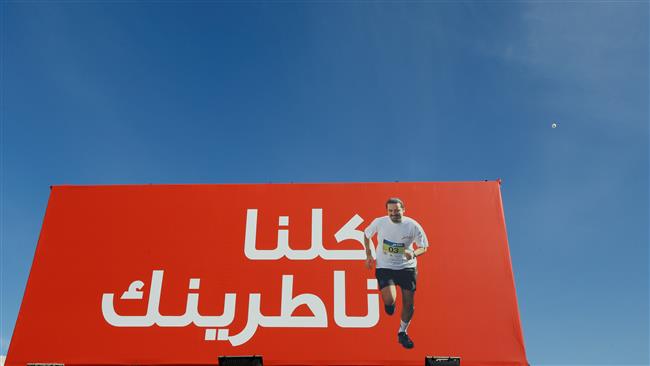
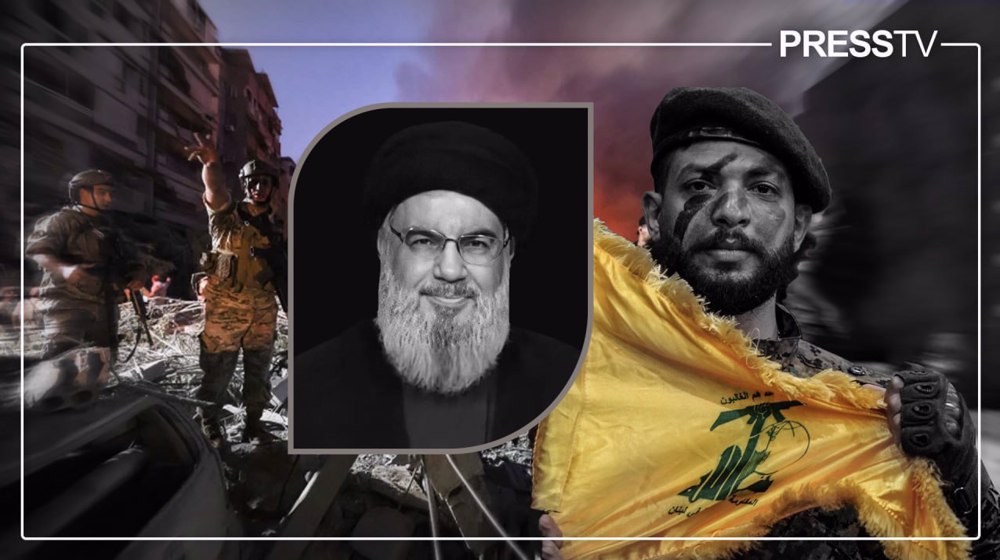

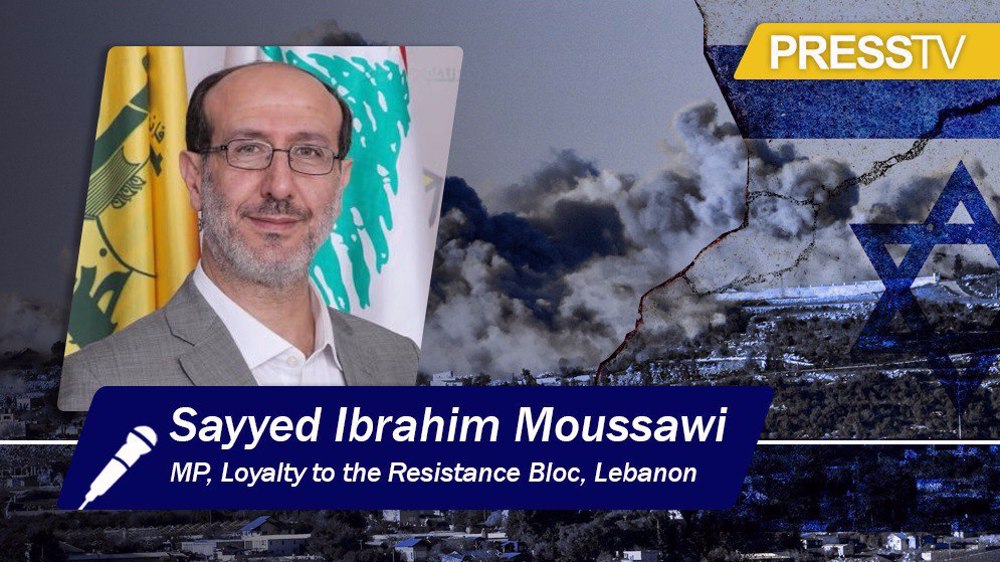



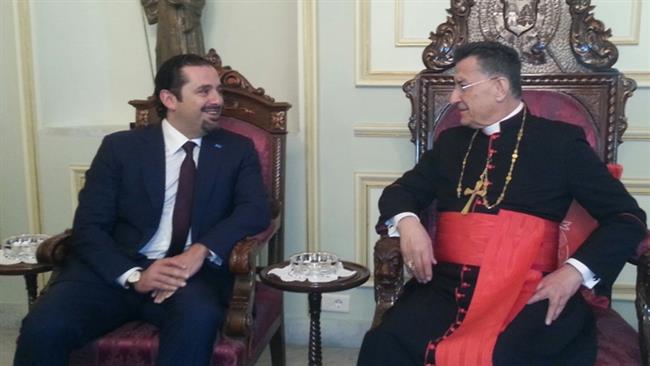
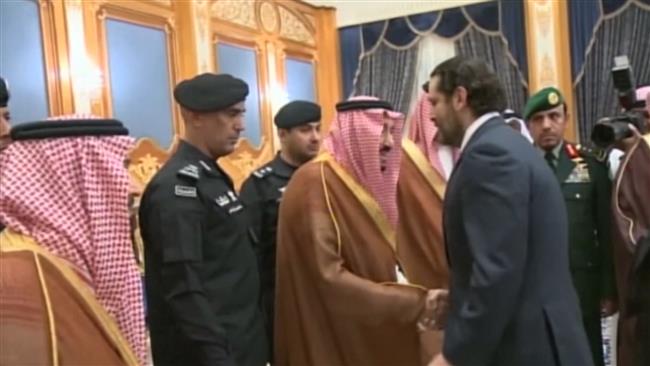
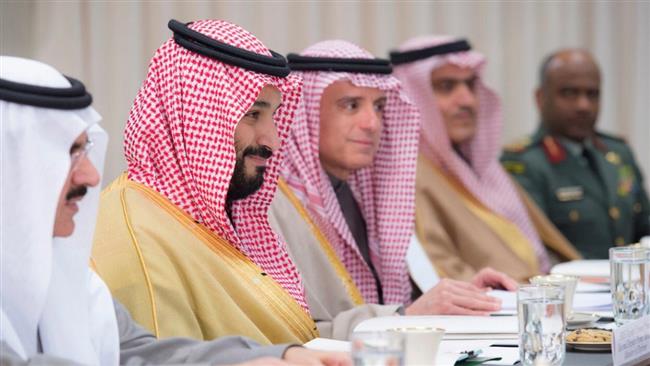
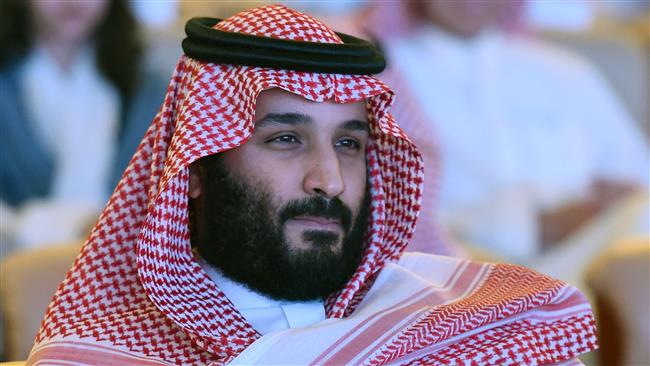

 This makes it easy to access the Press TV website
This makes it easy to access the Press TV website